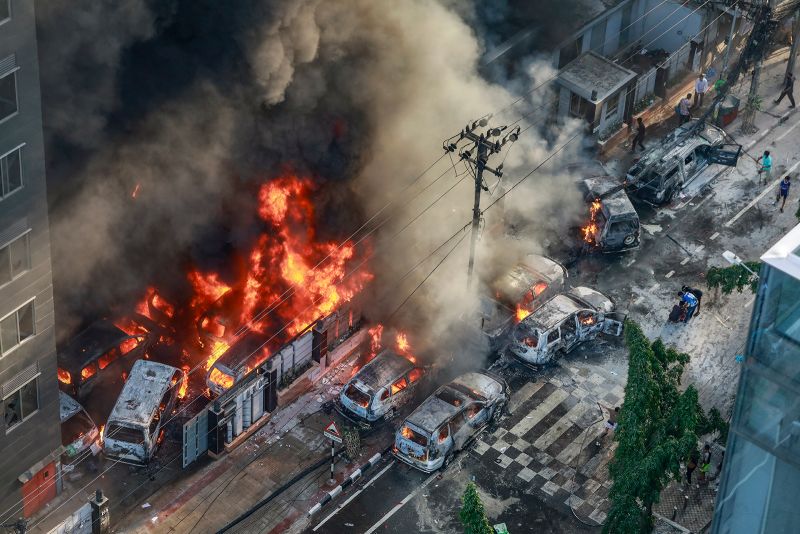Bangladesh, a South Asian nation with a complex political and social history, has recently witnessed a wave of intense debates and protests. At the heart of this controversy is the enduring issue of job reservations for the children of the country’s ‘freedom fighters,’ individuals who played a pivotal role in the country’s independence war against Pakistan in 1971. This issue has surfaced in the public domain, impacting both political and civil discourse, by questioning both the merits and consequences of this policy.
Under the ‘Quota System,’ a significant proportion of government jobs in Bangladesh are reserved for children and grandchildren of freedom fighters, also referred to as Muktijoddhas. This system was introduced as a means of honoring and recognizing the sacrifices of those who risked their lives during the War of Independence. However, as the country moves further away from its historical past, the system’s applicability has come under severe scrutiny.
Critics argue that the Quota System promotes nepotism and unfair advantage, leading to a highly skewed public sector that favors a specific section of society. They believe that this policy discourages merit and perpetrates a sense of entitlement among the beneficiaries. The critics also point out the stark social inequalities and economic stratification this system perpetuates, with individuals of non-freedom fighter lineage feeling marginalized.
The supporters of the reservation system, on the other hand, believe it is a matter of national honor. They claim that granting certain privileges to freedom fighters’ descendants acknowledges their ancestors’ sacrifices during the brutal liberation war. To them, it is also a means of providing some measure of economic security and social upliftment to the families who have had to endure considerable hardships due to the historical circumstances.
An increasing number of protests have recently erupted among students and job-seekers, urging the government to reform or abolish the quota system. The protestors argue that the significant percentages of reserved government jobs are a major barrier to finding employment in an already competitive job market. They also highlight their perception that the quota system is no longer reflective of Bangladesh’s present socio-political realities.
In response, the Bangladeshi government has shown an eagerness to engage in dialogue and consider reforms. The Prime Minister, Sheikh Hasina, has voiced willingness to review the quota system, acknowledging the mounting public pressure. While this shows a step towards a potential resolution, it is yet to be seen how and when these changes will be implemented.
Despite the contentious nature of this issue, it has engendered widespread discussions about other systemic problems present in the country’s administration and governance. It has brought to the fore serious concerns regarding corruption, political patronage, and the lack of transparency and accountability in Bangladesh’s public sector recruitment process.
However, it’s essential to recognize that any path towards change must be underpinned by a delicate balancing act: ensuring that the invaluable contributions of freedom fighters’ are acknowledged without perpetuating social disparities. Whether this shall eventually translate into comprehensive policy reforms or a complete abolition of the quota system remains a question for the future. The ongoing dialogue and debate indicate a vibrant democratic process and the people’s conquest for equal opportunities and justice. At the same time, it is a poignant reminder of the intricacies involved in honoring a nation’s past while aspiring for an equitable future.




